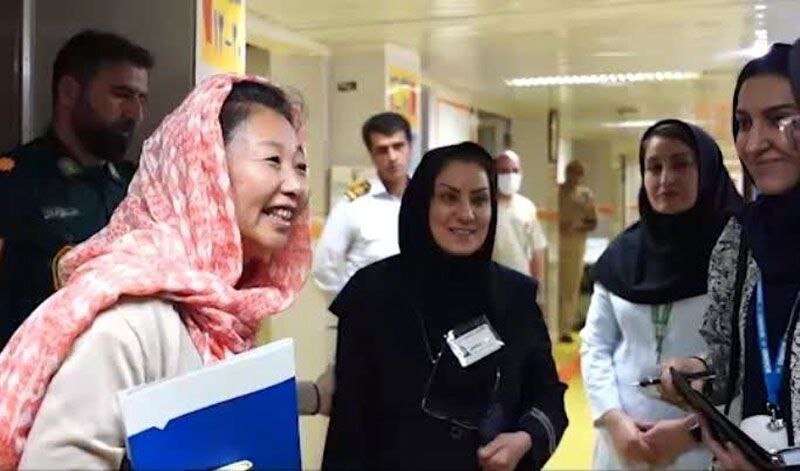UNHCR lauds medical services provided to refugees in Isfahan

TEHRAN – Following a visit to Al-Zahra hospital in Isfahan province, Yumiko Takashima, Representative of the United Nations High Commissioner for Refugees (UNHCR) in Iran, has commended the medical services provided to Afghan refugees.
During her visit to the hospital, the official talked to Afghan patients in person and was greatly impressed by hearing about their experiences and the way they were treated, IRNA reported.
“There is no discrimination between Iranian and Afghan patients in this hospital, and the medical staff’s humane, professional, and equal treatment is commendable,” she said.
Al-Zahra Hospital, as one of the country’s main medical centers, serves hundreds of patients, including Iranians and immigrants, per day. However, the economic pressures, sanctions, and the high costs of medical equipment have made it difficult to continue the services as in the past.
According to the head of Al-Zahra hospital, Minoo Movahedi, the Representative of the UNHCR was invited to Isfahan to become familiar with the capacities of the hospital, the kind of services offered as well as the problems in treating refugees, and to use the opportunity to develop cooperation with the organization to pay for part of the costs.
Appreciating the medical staff's efforts by writing a letter to the hospital, Yukimo has pledged to supply needed medical equipment, and cover part of the costs of refugees’ treatment.
According to the information available to UNHCR, Iran hosts some 773,000 refugees with Amayesh (761,000 Afghans) and Hoviat cards (12,000 Iraqis), which grant foreign nationals temporary residence and provide holders with refugee protection.
UNHCR estimates that around 3.8 million forcibly displaced people of various documentation status reside in Iran (Islamic Republic of) in 2024, making it the largest refugee-hosting country in the world.
Looking ahead to 2025, UNHCR Iran will focus on five strategic priorities: maintaining asylum space and strengthening the protection environment; increasing support to enhance and maintain inclusive services, such as health, education and social protection; promoting the self-reliance of forcibly displaced and stateless people; expanding opportunities for creative and innovative solutions through resettlement and complementary pathways, including voluntary repatriation when the situation in Afghanistan is conducive for return; and reducing and preventing statelessness and protecting stateless people through context-specific advocacy and enhanced partnerships.
MT/MG
